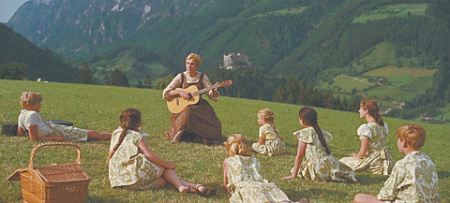
In an era defined by geopolitical friction and polarizing narratives, the architecture of international relations often appears to be built on treaties, summits, and strategic alliances. Yet, beneath this formal structure lies a more profound, universal foundation: the shared human capacity for joy in small, seemingly insignificant things. This quiet diplomacy of the soul, a recognition of our common vulnerabilities and delights, may hold a vital key to resilience in a fractured world.
Consider a simple inquiry, posed not in a diplomatic chamber but in casual conversation: “What are the things you love?” The answers reveal a language that transcends borders. An ENT surgeon, a man of science and precision, speaks not of medical breakthroughs but of the comforting sounds of horses in a stable. A colleague finds solace in the crisp rustle of a chocolate wrapper. Another finds a sense of serene connection in the distant whistle of a passing train, a sound that speaks of journeys and endless possibilities. These are not political statements, but they are deeply human ones, forging an instant, relatable connection.
Of course, our tastes are shaped by our culture. The great Italian filmmaker Federico Fellini famously compiled lists of his loves and loathings, adoring train stations, the painter Matisse, and risotto, while despising queues, football fans, and the playwright Brecht. Such idiosyncratic lists are personal, yet the act of curating one’s joys is universal. What one culture celebrates, another may see differently; the arrival of September is a welcome relief from the summer heat in Italy, but for those in northern climates, it can be a poignant prelude to a long, dark winter. The emotion, however—the marking of time and change—remains a shared experience.
Perhaps the most powerful common thread is not the pleasure itself, but its anticipation. The romance of an airport lies less in its crowded halls and more in the promise of the journey ahead. The chaotic sound of an orchestra tuning up is not yet music, but it is the thrilling guarantee of the harmony to come. This concept—that the expectation of a celebration can be more exhilarating than the event itself—offers a powerful metaphor for our global condition. In times of conflict and uncertainty, it is the patient, hopeful work towards a better future, the very act of anticipating peace and stability, that can sustain societies. This is the formula for unsinkability, for both individuals and nations.
This focus on future promise distinguishes a youthful, forward-looking perspective from one weighed down by the disappointments of the past. It is the difference between seeing a piece of chocolate as a simple delight, and seeing it as a reminder of health concerns or past regrets. To cultivate anticipation is to actively choose hope. One young man keeps a running list of desired gifts—not as a demand, but as a private catalog of future possibilities. A pair of rubber boots represents not just footwear, but the dream of future walks in a forest; a piece of archery equipment symbolizes a return to a cherished hobby. These items are placeholders for hope. In the grand theater of international affairs, it is this fundamental, human-scale hope that forms the most enduring and essential strategy of all.
